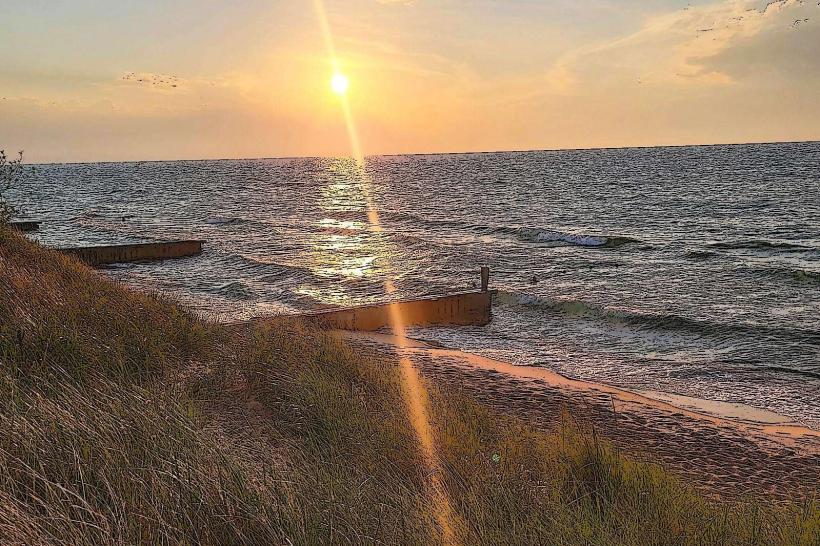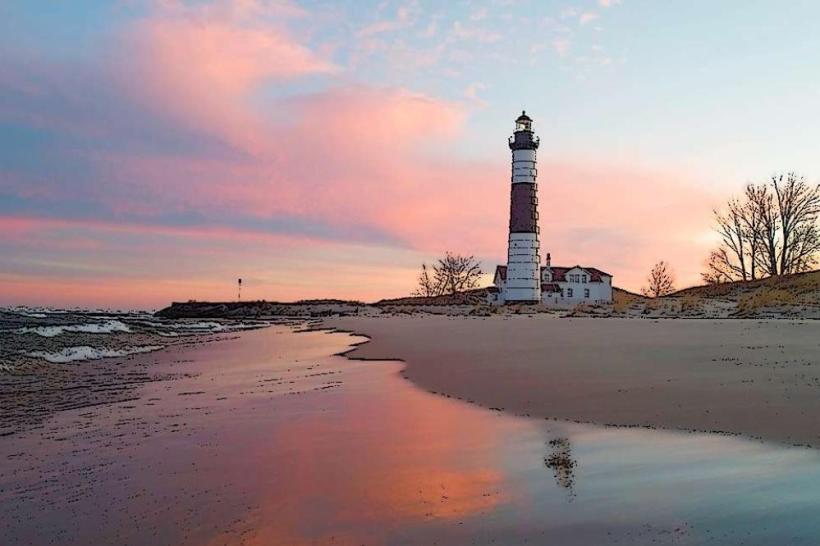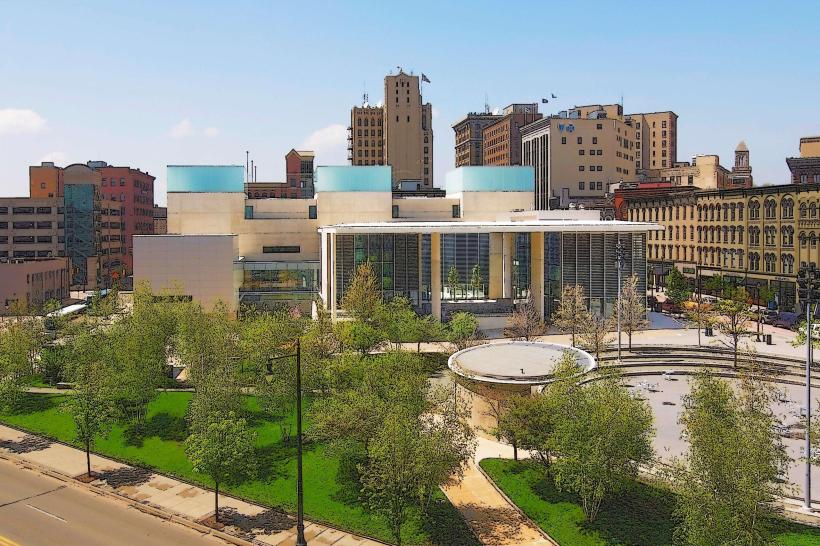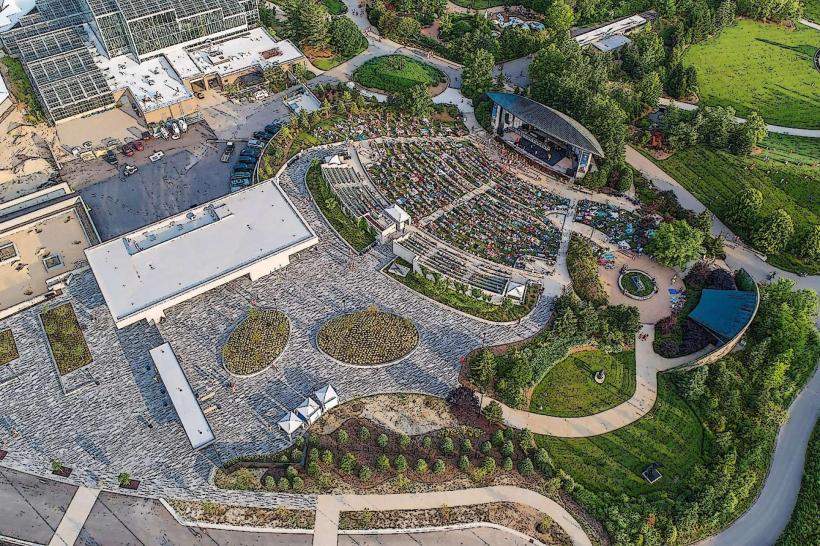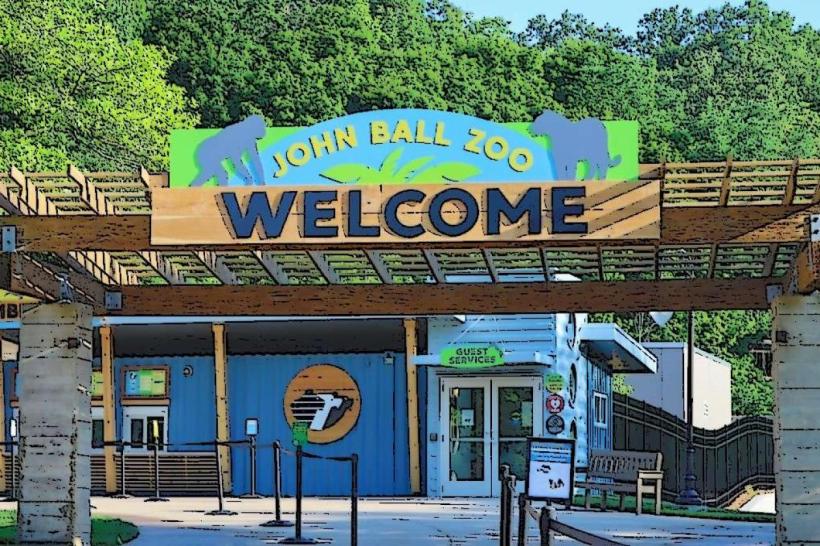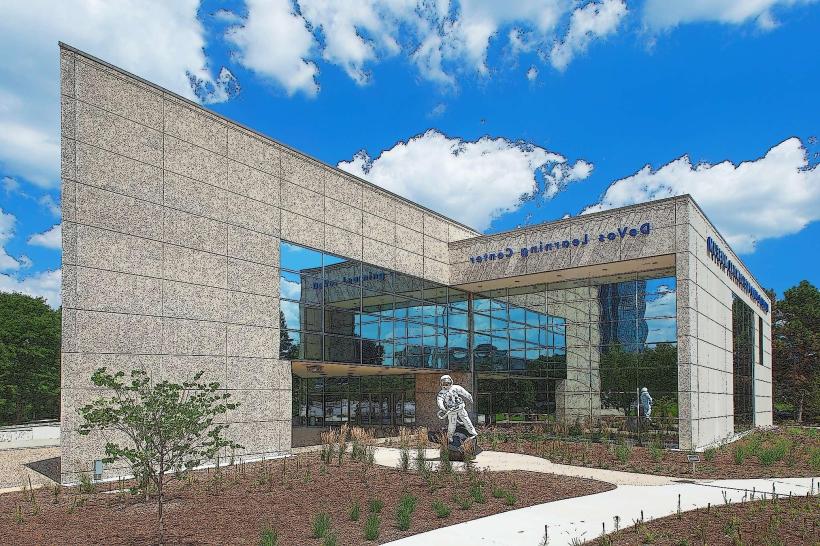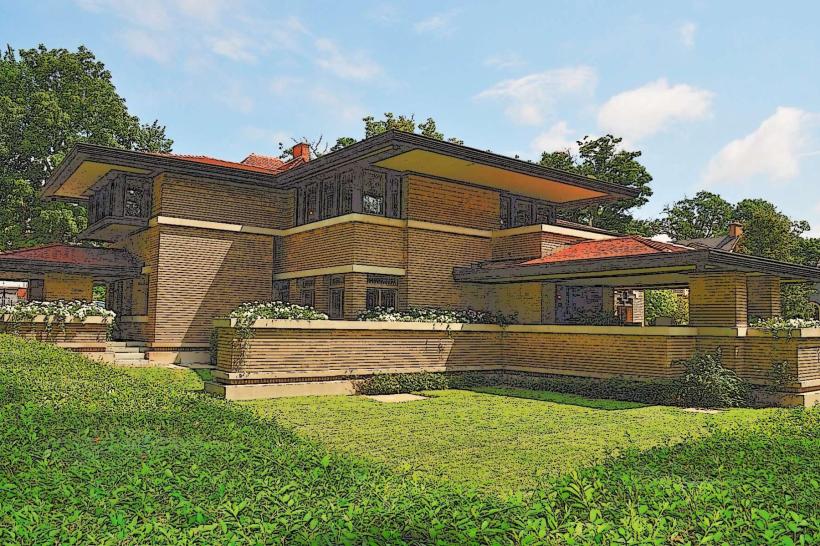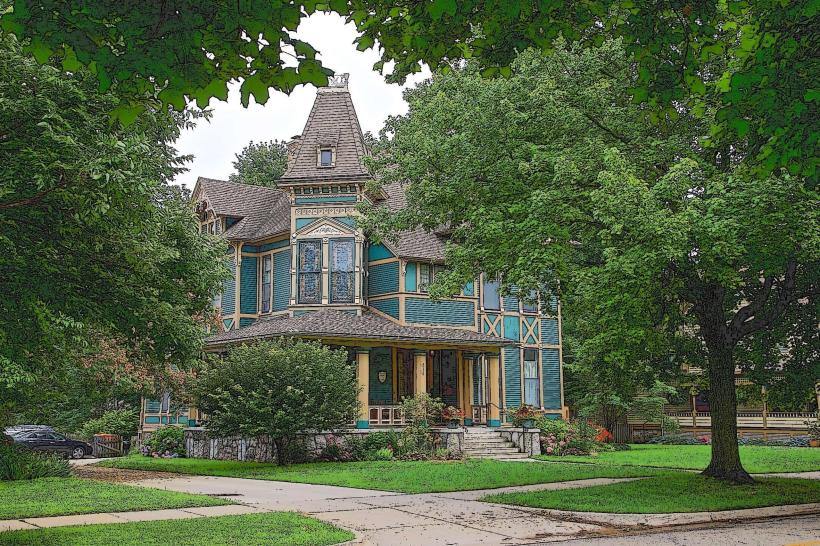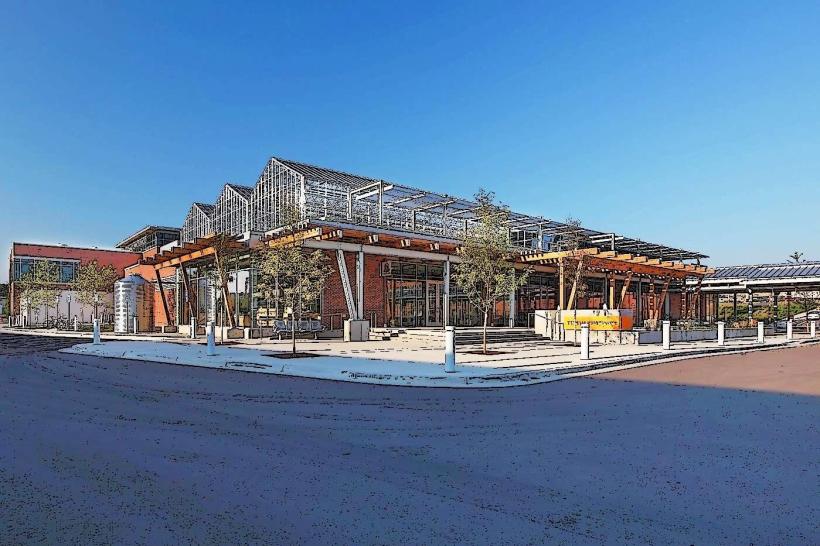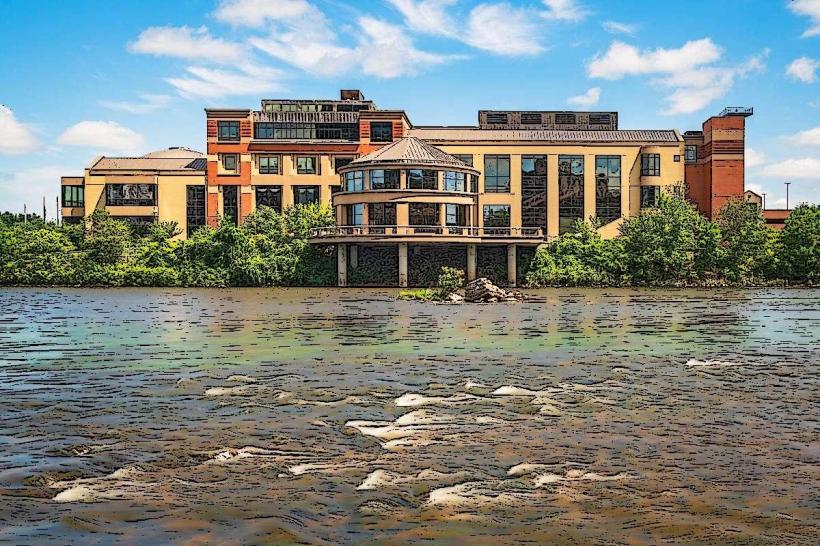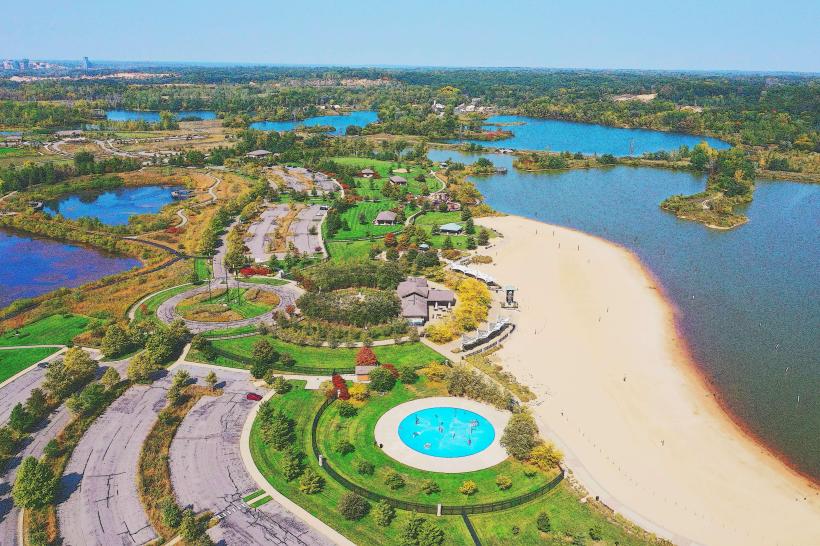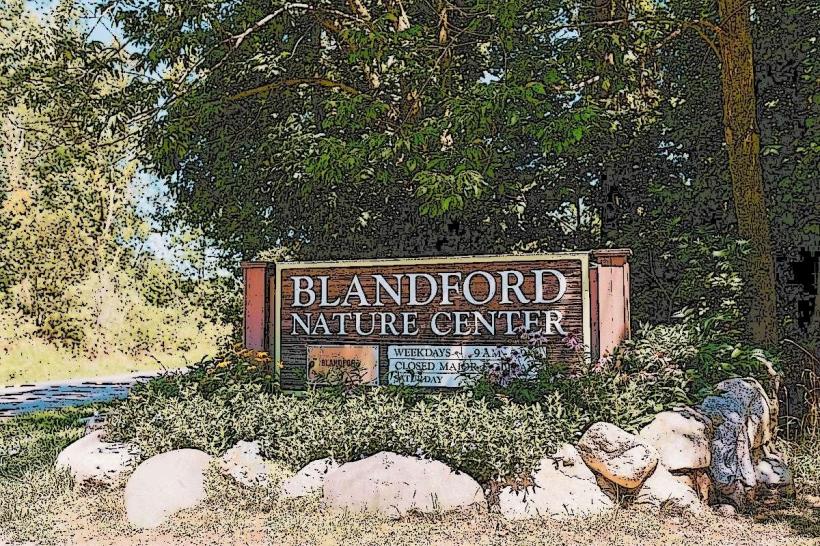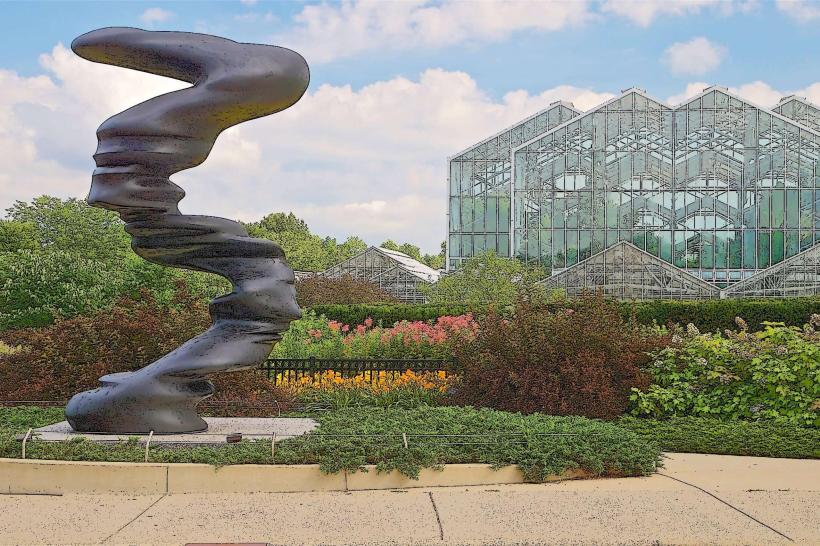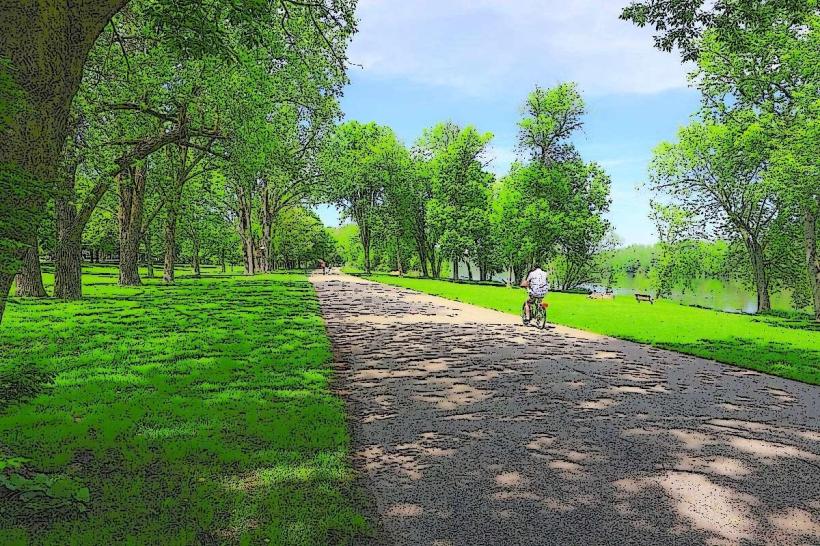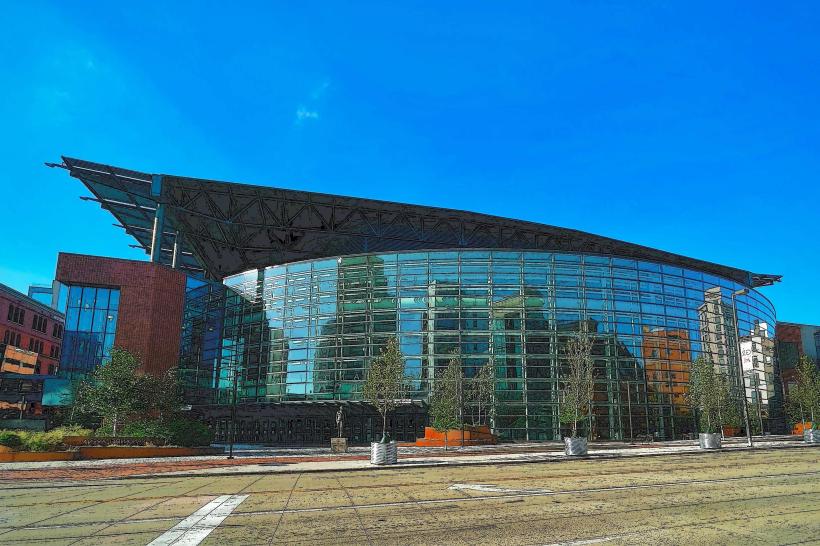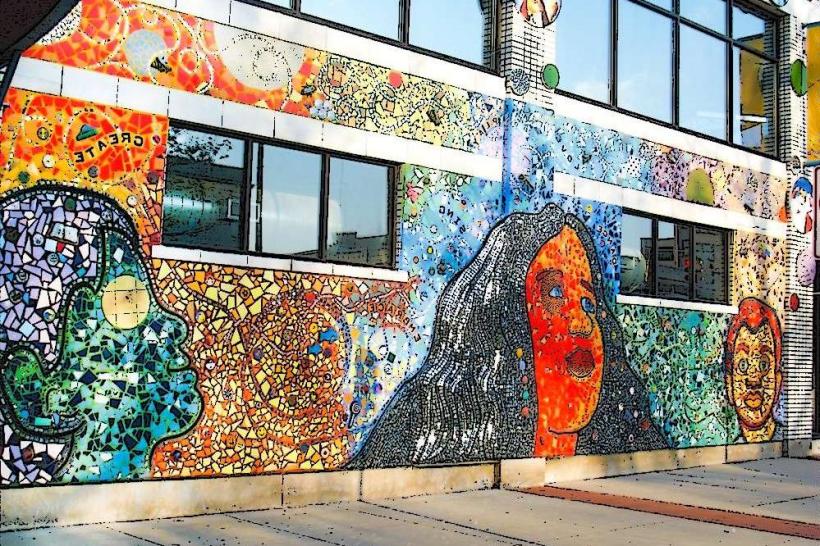Information
Landmark: Calvin University’s Ecosystem Preserve and Native GardensCity: Grand Rapids
Country: USA Michigan
Continent: North America
Calvin University’s Ecosystem Preserve and Native Gardens, Grand Rapids, USA Michigan, North America
Calvin University’s Ecosystem Preserve and Native Gardens, located in Grand Rapids, Michigan, is a significant natural area spanning approximately 100 acres on the university’s east campus. Established in 1985, this preserve serves as both a living laboratory for ecological research and a serene outdoor space dedicated to environmental education, conservation, and community engagement. It is widely regarded as one of the premier urban natural preserves in the region, providing valuable habitat for native flora and fauna while offering a variety of educational and recreational opportunities for visitors of all ages.
Location and Overall Setting
The preserve is situated at 1750 East Beltline Avenue SE, nestled within the urban environment of Grand Rapids but offering a distinct retreat into nature. The area is carefully managed to preserve and restore native ecosystems characteristic of West Michigan, including forests, wetlands, meadows, and ponds. This creates a mosaic of habitats that supports diverse plant and animal communities, making the preserve a critical green space for both wildlife and people.
Natural Features and Trails
One of the key attractions of the Ecosystem Preserve is its network of accessible trails totaling over 44 acres of publicly accessible pathways. These trails include a popular 1.7-mile loop that takes visitors through a variety of ecosystems, showcasing mature deciduous forests with towering trees, tranquil wetlands filled with seasonal vernal pools, open meadows buzzing with pollinators, and multiple ponds that serve as wildlife habitats. The trails are generally well-maintained and covered with natural woodchips, which not only provide a soft walking surface but also blend harmoniously with the surrounding landscape. They are designed to be family-friendly and accommodate visitors with strollers and moderate mobility needs, enhancing accessibility for a broad audience.
The Bunker Interpretive Center
Central to the preserve’s educational mission is the Bunker Interpretive Center (BIC), a state-of-the-art LEED Gold-certified building that functions as the preserve’s hub for learning and community activities. The center offers interactive exhibits focused on local ecology, natural history, and conservation practices, along with classrooms and multipurpose spaces used for workshops, lectures, and special events. The BIC also provides essential amenities such as restrooms and shelter, and it is open to the public Monday through Friday during regular business hours. The design of the building emphasizes sustainability and environmental harmony, reflecting the preserve’s overarching values.
Native Gardens and Demonstration Beds
Adjacent to the Bunker Interpretive Center is the Venema Plaza and Native Gardens, recognized as the largest public native plant garden complex in West Michigan. These gardens showcase over 40,000 plants representing more than 300 species native to the region. The gardens are organized into over 20 themed beds that demonstrate various sustainable landscaping techniques, such as rain gardens designed to manage stormwater, pollinator habitats supporting bees and butterflies, oak savanna restorations that replicate a once-common Midwest ecosystem, and shoreline plantings that protect water quality and habitat. These demonstration beds serve as a valuable educational resource, inspiring visitors to incorporate native plants into their home landscapes to support biodiversity and environmental health.
Biodiversity and Ecological Importance
The Calvin Ecosystem Preserve supports a remarkable diversity of wildlife, with documented sightings of over 227 animal species and more than 300 plant species. This rich biodiversity includes several species of special conservation concern, such as the Blanding’s turtle and the Eastern box turtle, both of which are considered vulnerable in Michigan. The preserve is also home to bird species like the Cooper’s hawk, and it serves as a critical stopover for migratory birds. The high Floristic Quality Index score of 51.7 reflects the ecological integrity and native plant dominance within the preserve, signifying its importance as a conservation area in the urban landscape. Additionally, the preserve plays a crucial role in the watershed by supporting the headwaters of Whiskey Creek, contributing to regional water quality and habitat connectivity.
Educational and Community Engagement Programs
Education and stewardship are core components of the preserve’s mission. The preserve offers an extensive range of programs tailored to all age groups, from preschoolers to adults. For young children, the “Saplings” program provides nature-based learning through hands-on activities and guided walks, fostering early connections with the natural world. For older visitors and volunteers, stewardship workdays invite community members to participate in habitat restoration, invasive species removal, trail maintenance, and native plant propagation. The preserve also hosts seasonal workshops, environmental career panels, and public lectures that deepen understanding of ecology, sustainability, and conservation science. One notable community event is the annual Native Plant Sale, where more than 100 species of plants grown in the preserve’s greenhouses are made available to the public, encouraging native gardening practices in the region.
Accessibility and Visitor Information
The Calvin Ecosystem Preserve is open daily from 7:00 AM until dusk, welcoming hikers, birdwatchers, photographers, and nature lovers year-round. The Bunker Interpretive Center operates Monday through Friday from 8:30 AM to 4:30 PM. Admission to the preserve and gardens is free, making it an accessible resource for the entire community. Parking is available at the main entrance and in designated areas near the Bunker Center. The trails and facilities are designed to be welcoming to visitors with different mobility levels, though some natural surfaces may present challenges for wheelchairs or strollers on certain paths.
Summary
Calvin University’s Ecosystem Preserve and Native Gardens stands as a vital ecological and educational asset in Grand Rapids. Combining extensive native habitats, an accessible trail system, a cutting-edge interpretive center, and extensive native plant gardens, the preserve offers a peaceful yet engaging natural experience within an urban setting. Its role in biodiversity conservation, environmental education, and community involvement highlights its importance not only to the university but also to the wider Grand Rapids community and the region’s ecological health. Visitors leave with a deeper appreciation for the natural heritage of West Michigan and a greater understanding of sustainable practices that can be applied in everyday life.

